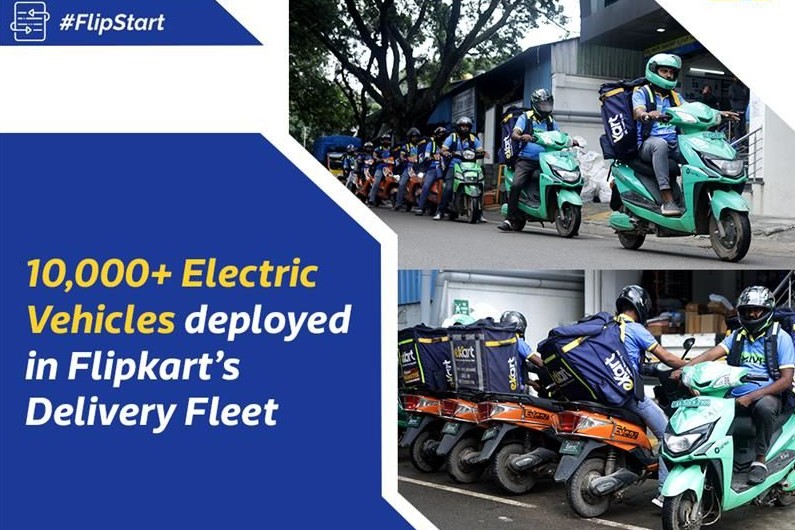Indian Amazon rival Flipkart expands delivery fleet to 10,000 EVs
Flipkart says it has improved the speed of its last-mile deliveries by 20 per cent and reduced cost per order at the hub level by switching to electric vehicle operations. The company uses 75% of its EV fleet in Tier-I cities, including those with a population of more than four million, such as Bengaluru, Chennai, Delhi, and Hyderabad. It suggests it is still facing challenges in deploying EVs in smaller cities.
Along with expanding the EV fleet, Flipkart is making significant investments in charging infrastructure to accompany its switch to electric vehicles. In partnership with the Adani Group, it is setting up 38 dedicated charging stations consisting of 190 charging ports in main Tier-II cities. Scaling up the charging network in the smaller cities will help it increase the adoption of EVs there.
Flipkart offers more than 150 million products across more than 80 categories, and it is likely to see a high adoption of EVs, particularly in the grocery business. In August, the company said it delivered more than 55 per cent of its grocery orders by EVs. During this year’s festive period in India (September-November), the company fulfilled more than 16% of grocery orders in Tier-II cities like Bhubaneswar, Hubli, Lucknow, Ludhiana, Malda, Sonipat, and Vizag using EVs.
“With the deployment of over 10,000 EVs, what we have achieved is more than a logistical shift – it is a testament to our dedication to creating a lasting positive impact on the environment while enhancing service efficiency for our customers,” said Hemant Badri, Group Head of Supply Chain, Customer Experience & Re-commerce Business at Flipkart. “By pairing our expanded EV fleet with critical investments in charging infrastructure, we are not only driving operational excellence but also setting a benchmark for sustainable practices in the industry at large. As we continue to scale this transition, we remain focused on creating a supply chain that is both resilient and sustainable.”
In August 2020, Flipkart joined Climate Group’s EV100 initiative and became the first Indian e-commerce player to do so. The company plans to switch entirely to electric vehicles by 2030 as part of its pledge to the global NGO. “Through our strategic partnership with the Climate Group’s EV100 initiative and collaborations with leading OEMs, EV service providers, charging infrastructure partners, financing bodies, and manpower sourcing agencies, we are well-positioned to achieve a 100% last-mile electric fleet by 2030,” Nishant Gupta, Flipkart’s Head of Sustainability, said commenting on the new milestone.
Amazon, Flipkart’s closest rival, has already commissioned more than 24,000 EVs globally, but it lags in India. The US-American company has more than 7,200 EVs in its fleet in India and aims to grow it to 10,000 by 2025.
flipkart.com (PDF), linkedin.com





0 Comments